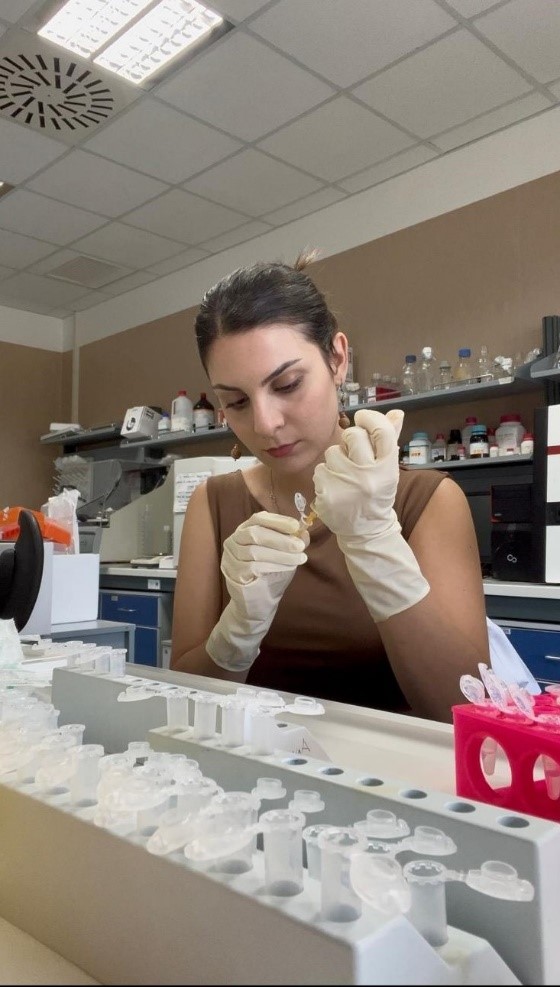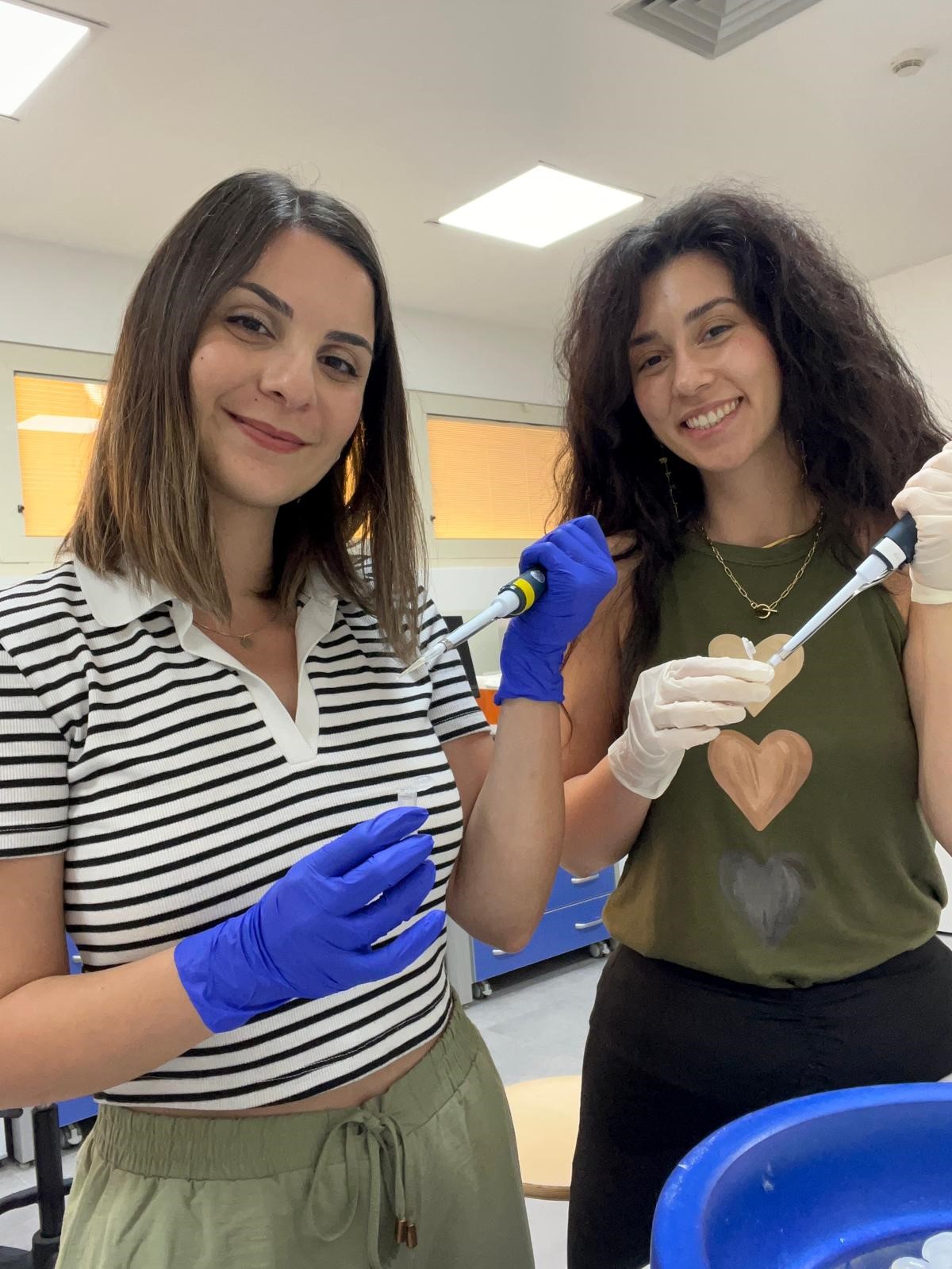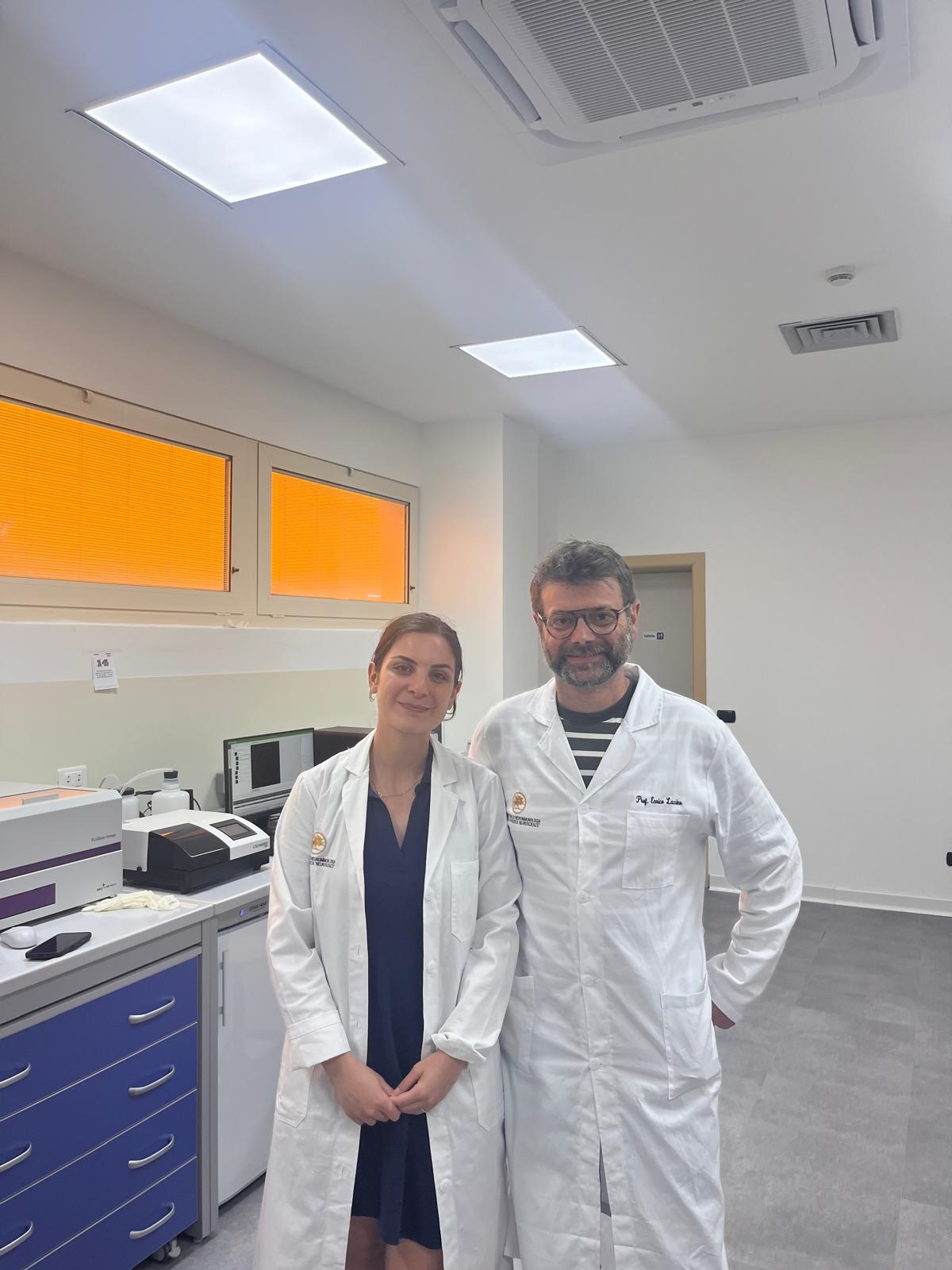EFLM LabX report by Irem Açılan, Turkey
I would like to begin by expressing my heartfelt gratitude to Prof. Enrico Iaccino for warmly welcoming me into his laboratory and for his invaluable guidance throughout my stay. I am also deeply thankful to the EFLM Committee for organizing such a valuable and inspiring program for young scientists and doctors like myself. Lastly, I extend my sincere appreciation to our department head, Prof. Dr. Ali Ünlü, for his continuous support and encouragement, which made this enriching experience possible.As a resident doctor in the Department of Medical Biochemistry at Selçuk University Hospital in Turkey, I am driven by a passion for advancing my knowledge and skills in the field. This motivation led me to apply for and be accepted into the EFLM LabX program, where I had the incredible opportunity to receive one month of hands-on training in the laboratory of Prof. Enrico Iaccino at the University “Magna Graecia” of Catanzaro, Italy.
During my engaging training, I focused on the fascinating world of extracellular vesicles (EVs)—particularly exosomes—and their pivotal role in the diagnosis and treatment of neurodegenerative disorders like Parkinson’s disease (PD) and progressive supranuclear palsy (PSP), as well as hematologic malignancies such as multiple myeloma and leukemias. The complexity of these conditions and the potential for EVs to serve as biomarkers for early detection and monitoring captivated my interest.
One of the most critical challenges in the application of liquid biopsies based on EVs is the pre-analytical variability, which can obscure biomarker detection and compromise diagnostic accuracy. I was inspired by how Prof. Iaccino's laboratory actively tackles these challenges through systematic and innovative approaches designed to minimize pre-analytical errors. This includes emphasizing meticulous sample collection, optimizing factors such as the choice of collection tubes and anticoagulants to prevent degradation or contamination of EVs.
The laboratory adheres to strict protocols for sample management and processing, ensuring minimal delays and maintaining optimal handling conditions to preserve the integrity of EVs. We delved into the importance of standardized storage protocols to safeguard against EV degradation, and refined isolation techniques were utilized to enhance yield and purity while minimizing contamination. The research conducted in the lab also explores how patient-related factors can influence the concentration and composition of circulating EVs. This understanding is crucial for refining the standardization protocols for liquid biopsy procedures, ultimately improving diagnostic outcomes.
Throughout my training, I had the remarkable opportunity to work with advanced instrumentation and techniques that brought theory to life. I engaged in ultracentrifugation for EV isolation, which allowed me to appreciate the intricacies of extracting these tiny yet significant vesicles from biological fluids. Nanoparticle tracking analysis (NTA) enabled me to size and quantify the EVs effectively, while flow cytometry provided a powerful means to characterize EV subpopulations in detail. Additionally, I took part in RNA extraction and analysis, which equipped me with the skills to examine the molecular cargo within EVs, revealing insights into their biological functions and potential roles in disease.
The excitement did not stop there; to further elevate the reliability of liquid biopsies, there is an inspiring push for automation in the purification and characterization of EVs. I was thrilled to learn about the exploration of automated platforms, including microfluidic devices and robotic systems, which promise to reduce human error and ensure consistent sample treatment. The integration of high-throughput technologies, such as automated flow cytometry and single-particle analysis, allows for a comprehensive profiling of EV subpopulations, particularly those derived from neurons (EVn). Understanding these subpopulations is crucial for unlocking their specific roles in neurological health and disease, and I found this aspect of the research particularly captivating, as it holds the potential for groundbreaking advances in diagnostics and therapeutics.
In conclusion, my training in Prof. Iaccino's laboratory has been a truly transformative experience that reinforced the importance of addressing pre-analytical variability in liquid biopsies while highlighting the exciting potential for automation in EV processing. By focusing on these challenges and deepening our understanding of EV biology, especially regarding neuronal-derived EVs, we can unleash the full potential of these groundbreaking diagnostic tools. The knowledge and skills I have gained during this program are invaluable, and I am immensely grateful for this opportunity. I wholeheartedly encourage my colleagues to engage with such inspiring research experiences, as they are essential for our growth as scientists and healthcare professionals. Thank you once again, Prof. Enrico Iaccino and his team, for their warm hospitality, exceptional guidance, and for making this incredible journey an unforgettable one!
I would like to begin by expressing my heartfelt gratitude to Prof. Enrico Iaccino for warmly welcoming me into his laboratory and for his invaluable guidance throughout my stay. I am also deeply thankful to the EFLM Committee for organizing such a valuable and inspiring program for young scientists and doctors like myself. Lastly, I extend my sincere appreciation to our department head, Prof. Dr. Ali Ünlü, for his continuous support and encouragement, which made this enriching experience possible.As a resident doctor in the Department of Medical Biochemistry at Selçuk University Hospital in Turkey, I am driven by a passion for advancing my knowledge and skills in the field. This motivation led me to apply for and be accepted into the EFLM LabX program, where I had the incredible opportunity to receive one month of hands-on training in the laboratory of Prof. Enrico Iaccino at the University “Magna Graecia” of Catanzaro, Italy.




